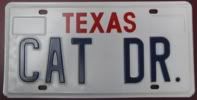DAMAGE!!! REVERSED POLARITY!!!
18 posts
• Page 1 of 2 • 1, 2
I accidentally hooked up my battery charger to the battery backwards once....but it only blew the fuse, no damage to the charger. That's why a cheap fuse is so valuable.
 Mark (& Cindi)
Mark (& Cindi) Visit our website: Little Swiss Teardrop
I was wondering why the water balloon was getting bigger... and then it hit me.




-

planovet - The Cat Man
- Posts: 5583
- Images: 3
- Joined: Tue Nov 27, 2007 4:48 pm
- Location: Plano, Texas
My neighbor hooked his BRAND NEW boat up backwards.
Starter relay shorted out, causing starter to start running (backwards)
By the time he disconnected the battery.
Starter was burnt out, along with almost all the wiring
2 Fires started, but were put out.
GPS/Fishfinder was OK
Starter relay shorted out, causing starter to start running (backwards)
By the time he disconnected the battery.
Starter was burnt out, along with almost all the wiring
2 Fires started, but were put out.
GPS/Fishfinder was OK
-

SomewhereInND - Teardrop Builder
- Posts: 42
- Joined: Sat Dec 19, 2009 7:44 pm
- Location: Minot, ND






